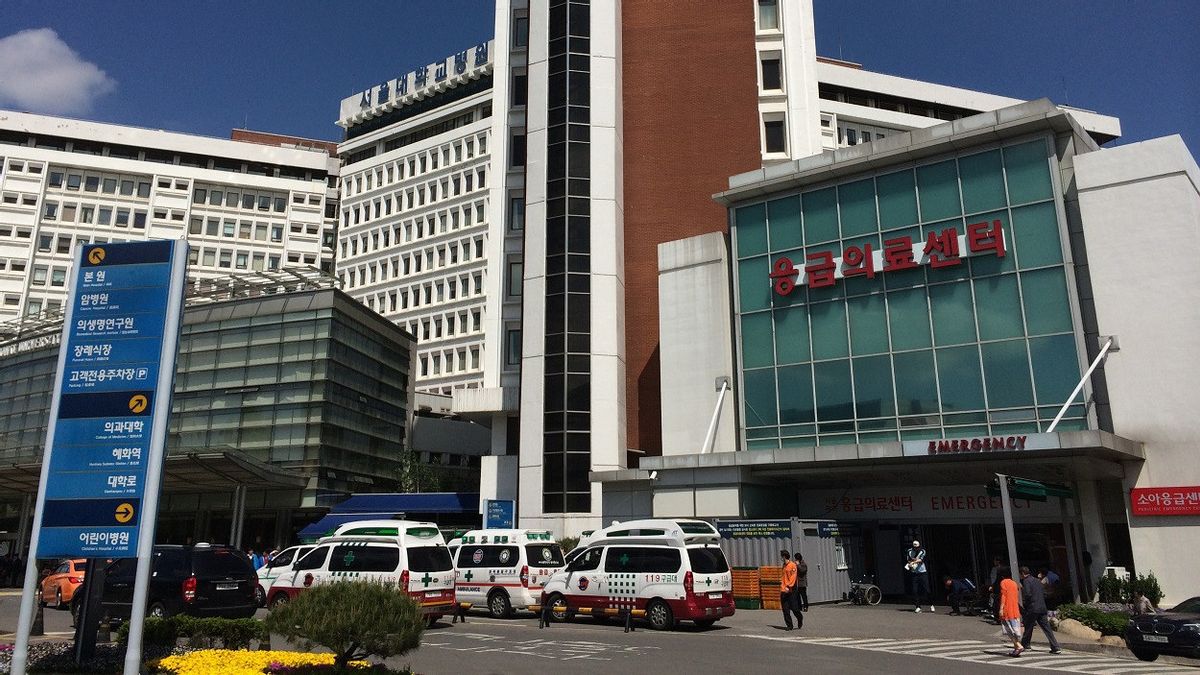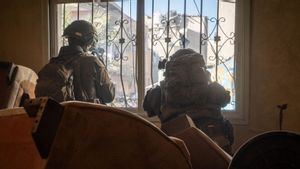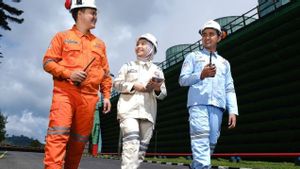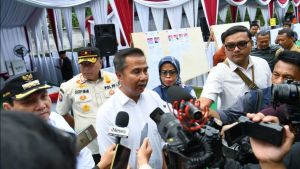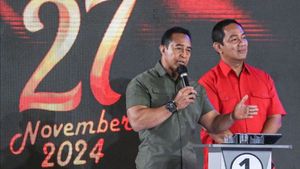JAKARTA - A number of young doctors in South Korea who took part in the strike highlighted the high workload they were working on, while the payments they received were considered low and they were not heard.
Hospitals and health facilities in South Korea were forced to refuse patients and cancel the operation, after about two-thirds of young doctors in the country went on strike this month as a form of protest.
Young doctors say their salary and working conditions should be a priority, compared to the government's plan to increase the number of doctors.
Meanwhile, authorities said more staff were needed to improve health services in remote areas and meet growing demand in one of the fastest growing communities in the world.
Interson Ryu Ok Hada said he always wanted to help people, but now he joins his colleagues who staged a strike. Likewise with Park Dan who also chose to strike, being part of around 7,800 interns and residents who went on a mass strike.
Ryu and Park said junior doctors, which are important driving wheels in South Korea's medical system, are working too hard, being paid low, and not being heard of.
"The current medical system in South Korea, which is very good, is run by making cheap interns continue to work hard," Ryu told Reuters.
The doctors protested the government's plan to increase the number of students received in medical schools, in an effort to strengthen the health care system in one of the countries with the fastest aging in the world.
The doctors said the real problem was salary and working conditions. The government threatened to arrest the doctors who led the strike.
Meanwhile, senior doctors and private practitioners have yet to strike, but have held demonstrations urging the government to scrap the plan, with 400 people gathering in Seoul on Sunday.
However, the government's plan to increase admissions to medical schools is quite popular, with about 76 percent of respondents supporting it, despite its political affiliation, according to a recent Korean Gallup poll.
It is known that interns and resident doctors in South Korea work in shifts of 36 hours, compared to shifts of less than 24 hours in the United States according to the Korean International Resident Association. The report states that half of the US young doctors work 60 hours a week or less, while Korean doctors often work more than 100 hours.
Ryu said he worked more than 100 hours a week at one of the country's most prestigious university hospitals, for a fee of 2 million won to 4 million won (1,500-3,000 US dollars) a month including overtime wages. While the average US population in the first year earned about 5,000 US dollars per month, according to American Medical Association data.
Meanwhile, Park, who chairs the Korean Internship Resident Association, wants authorities to include doctors in important discipline such as pediatrics and emergency units in major hospitals.
Doctors want better legal protection from malpractice demands and system changes, where many hospitals depend on low-form labor and services outside of insurance to stay in a country that is often praised for providing universal-quality health insurance at affordable prices, Park said.
Park admits he is facing a dilemma between his patients and the government's policy of enforcing policies without listening to doctors. However, he said he had no choice.
"I am proud to save patients, so far. As many doctors say, it is heartbreaking and difficult to leave patients," said Park.
"However, the current system is distorted, so we need something better than that," he said.
On the other hand, the hospital has not yet processed the resignation of the doctors who protested, who say they have not carried out a strike. The government has ordered them to return to work, threatening to arrest them or revoke their work permits, saying their collective actions cannot be justified and people's lives must take precedence.
SEE ALSO:
The doctors who went on strike represented only a fraction of the 100,000 doctors in South Korea, but they covered more than 40 percent of staff at major education hospitals, who carried out important tasks in emergency rooms, intensive care units, and operating rooms.
The emergency room in the five largest hospitals in South Korea was on "red alert" on Sunday, meaning they ran out of beds.
Earlier, Prime Minister Han Duck-soo said on Friday, public hospitals would remain open longer and on weekends and holidays to meet demand.
The English, Chinese, Japanese, Arabic, and French versions are automatically generated by the AI. So there may still be inaccuracies in translating, please always see Indonesian as our main language. (system supported by DigitalSiber.id)
